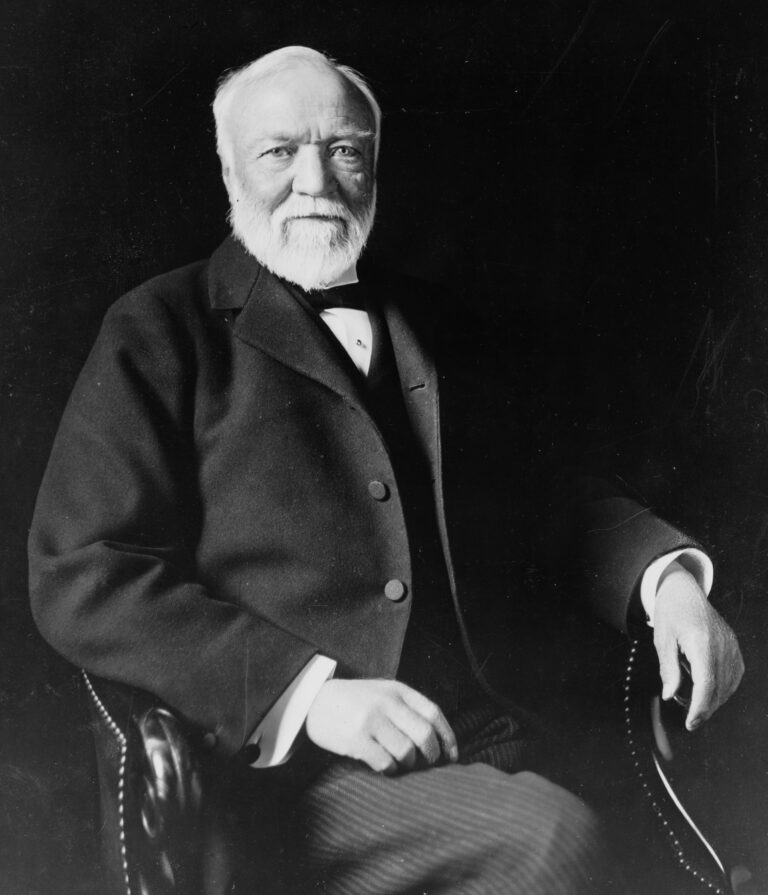Winning Has a Price: The Hidden Costs of Leadership
The Unseen Burdens of Leadership
Leadership is a profound and enduring force that shapes our world in countless ways. It propels organizations to achieve their goals, guides communities towards progress, and inspires individuals to overcome challenges they never thought possible. In the annals of history, we find leaders who have carved their names into the collective memory of humanity, leaving a legacy of transformation and inspiration. But as we delve deeper into the enigmatic world of leadership, a stark reality emerges—one that often remains hidden beneath the veneer of success and achievement.
“Winning has a price. Leadership has a price. Are you paying that price? Are you willing to?” These questions resonate with a sobering truth that has been whispered in the corridors of power, discussed in hushed tones during late-night reflections, and grappled with by leaders from all walks of life. The journey to leadership, the pursuit of success, and the relentless drive to excel come with a price tag that few truly comprehend when they embark on this path.
Over my four decades of experience in the field of leadership development, I have witnessed leaders rise and fall, their destinies intertwined with the choices they make, and the sacrifices they endure. Yet, one undeniable fact remains: leadership exacts a dual toll—one on the leader personally and another on the world they seek to influence.
In this exploration, we will delve into the profound concept that “Winning has a price.” It is a declaration that resonates with leaders, a reminder that victory often comes at great personal and professional cost. But it also serves as a clarion call to all who aspire to lead, asking them to confront a fundamental question: Are they willing to pay the price, and do they truly understand what that price entails?
The role of leadership in our contemporary world has evolved, demanding more from individuals who choose to step into its crucible. It is no longer solely about attaining power or accumulating accolades. True leadership is about the art of balancing ambition and sacrifice, navigating the treacherous waters of decision-making, and shouldering the burden of responsibility with unwavering commitment.
As we embark on this journey of exploration, we will shine a light on the hidden costs of leadership, both personal and professional. We will delve into the sacrifices that leaders often make, from the relentless pursuit of success that consumes their time to the toll it takes on their mental and emotional well-being. We will also examine the profound impact that leadership has on the lives of those who follow, the loved ones who stand by, and the organizations that rely on their guidance.
Throughout this article, we will navigate the complex web of leadership, weaving together stories of triumph and tragedy, insight and introspection. We will challenge leaders to assess their own journeys and ask whether they are truly paying the price or merely skimming the surface of leadership’s profound demands.
In the end, this exploration is not a condemnation of leadership but a call to awareness. It is an acknowledgment that leadership is a privilege, a responsibility, and a choice. It is a reminder that, in the pursuit of victory, leaders must also reckon with the sacrifices they make along the way. So, as we embark on this profound journey of introspection and discovery, I invite you to ask yourself: Are you paying the price, and are you willing to continue doing so? The answers may reveal the essence of your leadership journey and the legacy you leave behind.
Dual Price of Leadership
In the world of leadership, the adage “Winning has a price” stands as an immutable truth, a timeless reminder of the profound responsibilities and sacrifices that come with the territory. To truly understand the hidden costs of leadership, we must first unravel the dual nature of this price—the personal and the professional. These two dimensions interlace, creating a complex tapestry of challenges and rewards for those who dare to lead.
Exploring the Concept of “Winning has a price”
-
Success vs. Sacrifice: Leadership is often synonymous with success, achievement, and recognition. Yet, beneath the surface of accolades and triumphs lies a stark reality: the price of leadership. True leaders know that the pursuit of victory requires sacrifices, sometimes significant ones. The recognition of this balance between success and sacrifice is the first step on the path to understanding leadership’s true nature.
-
The Paradox of Leadership: Leadership is paradoxical in its essence. It requires both unwavering confidence and the humility to learn from mistakes. It demands decisiveness and the ability to adapt to ever-changing circumstances. Leaders must be both strong and vulnerable, assertive and empathetic. This paradox is at the heart of the price paid by leaders, as they navigate the complex terrain of human dynamics and organizational challenges.
Evolving Role of Leadership in Modern Society
Leadership is not static; it evolves with the times, shaped by the changing needs and expectations of society. In today’s fast-paced, interconnected world, leadership has taken on new dimensions:
-
The Leadership-Driven World: With the globalization of business and the advent of digital technologies, leadership has become a potent force in shaping the global landscape. Leaders are expected to steer organizations through turbulent waters, adapting to economic, political, and social shifts that have far-reaching consequences.
-
A Moral Imperative: Beyond traditional notions of leadership, today’s leaders are also called upon to address moral and ethical issues. They must grapple with questions of sustainability, diversity, equity, and inclusion, recognizing that their decisions impact not only shareholders but society as a whole.
Setting the Stage: The Price of Winning
To comprehend the full extent of the price of leadership, we must examine its personal and professional dimensions:
-
The Toll on Personal Life: Leadership exacts a toll on personal life that is often underestimated. Long hours, relentless pressure, and the constant need to be “on” can strain relationships, impact mental and physical health, and lead to feelings of isolation.
-
The Pressure of Decision-Making: Leaders are entrusted with the responsibility of making critical decisions that affect the livelihoods of their employees, the success of their organizations, and the well-being of their communities. The weight of these decisions can be all-consuming, taking a toll on mental and emotional health.
-
The Responsibility to Others: Leadership comes with an inherent responsibility to others. Leaders are accountable for the well-being of their team members, the financial stability of their organizations, and the ethical conduct of their actions. This responsibility can lead to sleepless nights and moments of self-doubt.
As we journey deeper into the intricate world of leadership, it becomes evident that the price paid for leadership is not one-dimensional but multifaceted, affecting both the leader and those who depend on them. In the sections that follow, we will explore these facets in greater detail, shedding light on the personal and professional price tags that accompany the pursuit of leadership excellence. Through this exploration, we hope to equip current and aspiring leaders with the insights and awareness needed to navigate the challenging terrain of leadership, recognizing that, indeed, winning has a price, and it’s one that deserves our careful consideration.
Personal Price of Leadership
Leadership is not a role that exists in isolation; it is deeply intertwined with the lives of those who bear its mantle. To comprehend the full scope of the hidden costs, we must first examine the deeply personal sacrifices that leaders make. These sacrifices, often concealed beneath a façade of success, shape the leaders themselves and the world around them.
Sacrifice of Personal Time
-
Balancing Work and Personal Life: The demands of leadership often blur the boundaries between work and personal life. Long hours, travel, and constant availability can disrupt the delicate equilibrium between one’s career and personal well-being. Leaders must navigate this delicate balance, often at great personal cost.
-
The Impact on Relationships: Maintaining personal relationships can be challenging for leaders. The incessant demands of leadership can strain marriages, friendships, and family bonds. The price of leadership can manifest in missed family gatherings, postponed vacations, and the feeling of being physically present but emotionally distant.
Mental and Emotional Toll
-
Stress and Burnout: Leadership can be an unrelenting journey, laden with stress and pressure. The weight of responsibilities, the need to make tough decisions, and the relentless pursuit of excellence can lead to burnout—an emotional and physical exhaustion that takes a profound toll on leaders.
-
Loneliness at the Top: The higher one ascends in the leadership hierarchy, the lonelier it can become. The isolation of leadership can lead to a sense of disconnection, as leaders may find it challenging to confide in peers or subordinates about their concerns and vulnerabilities.
Maintaining Physical Health
-
The Importance of Self-Care: Amid the demands of leadership, self-care can often take a backseat. Leaders may neglect exercise, healthy eating, and adequate sleep in pursuit of their goals. This neglect can have serious consequences for their physical health, exacerbating the mental and emotional toll of leadership.
-
The Consequences of Neglecting Health: Neglecting physical health can lead to a cascade of negative effects, including increased stress, decreased cognitive function, and a greater susceptibility to illness. In extreme cases, it can result in serious health conditions that may disrupt a leader’s ability to lead effectively.
As we delve deeper into the personal price of leadership, it becomes evident that the sacrifices made are not mere abstractions but tangible, often exacting a toll on the leader’s well-being. The pursuit of success, while admirable, can inadvertently lead to the erosion of one’s personal life, emotional stability, and physical health.
Yet, it is crucial to recognize that these personal sacrifices, as daunting as they may seem, do not go unnoticed. Leaders who acknowledge the personal price of their roles can take steps to mitigate its effects, prioritize self-care, and foster resilience. In doing so, they not only safeguard their own well-being but also become better equipped to lead with empathy and authenticity.
In the following sections, we will continue to explore the multifaceted nature of the price of leadership, delving into the professional costs and the impact on others. Through this comprehensive examination, we aim to illuminate the full spectrum of leadership’s hidden costs, empowering leaders to make informed choices and navigate their leadership journeys with wisdom and grace.
Professional Price of Leadership
Leadership, while deeply personal, also carries significant professional costs. As leaders navigate the complex landscape of decision-making, organizational dynamics, and the pursuit of excellence, they encounter challenges that demand both strategic acumen and emotional resilience. To comprehend the full extent of the hidden costs of leadership, we must examine these professional dimensions.
Decision-Making Under Scrutiny
-
Accountability and Consequences: Leaders are accountable for the outcomes of their decisions. Whether those decisions lead to success or failure, leaders bear the weight of responsibility for the consequences. This accountability can be emotionally taxing, as leaders must confront their own role in both triumphs and setbacks.
-
The Weight of Tough Choices: Leadership often requires making difficult decisions that affect the livelihoods of employees, the financial stability of organizations, and the overall direction of enterprises. The price paid here lies in the emotional toll of facing moral dilemmas and making choices that may not please everyone.
Navigating Organizational Politics
-
The Need for Diplomacy and Tact: Leaders must navigate the intricate world of organizational politics, where competing interests, egos, and power dynamics come into play. Diplomacy and tact become essential tools in mediating conflicts and maintaining cohesion within teams and organizations.
-
Managing Conflicting Interests: As leaders seek to balance the interests of various stakeholders—employees, shareholders, customers, and the broader community—they may find themselves in the unenviable position of mediating between competing demands. This can strain relationships and demand significant emotional energy.
Constant Pursuit of Excellence
-
The Pressure to Perform Consistently: The relentless pursuit of excellence is a hallmark of effective leadership. Leaders are expected to consistently deliver results, meet targets, and drive innovation. This pressure to perform can be unrelenting and may lead to feelings of inadequacy.
-
Dealing with Setbacks and Failures: Leadership is not immune to failure, and leaders must grapple with setbacks and adversity. How they respond to these challenges—whether with resilience, adaptability, or despair—can impact their professional reputation and the trajectory of their organizations.
These professional costs of leadership can exact a heavy toll, both emotionally and mentally. The pressure of decision-making, the need to navigate organizational politics, and the constant drive for excellence can lead to stress, anxiety, and even burnout. Yet, leaders who embrace these challenges as inherent to their roles can develop the resilience and emotional intelligence needed to weather the storms of leadership.
Moreover, the price paid professionally also extends to the impact on the organizations and teams they lead. Effective leadership entails making tough decisions, fostering a healthy organizational culture, and steering the ship through turbulent waters. Leaders who navigate these challenges with wisdom and integrity can guide their organizations to success and create lasting positive change.
In the following sections, we will continue our exploration of leadership’s hidden costs by examining the impact on others—family, employees, and stakeholders. Through this comprehensive examination, we aim to provide a holistic perspective on the multifaceted nature of leadership’s price, ultimately equipping leaders with the awareness and tools they need to lead with purpose and resilience.
The Price Paid by Others
While leadership imposes a significant personal and professional cost on those who hold the mantle of leadership, it also casts a long shadow on the lives of others—family members, employees, and stakeholders. To grasp the full scope of the hidden costs of leadership, it is essential to recognize the profound impact that leaders have on the world around them.
Impact on Family and Loved Ones
-
The Sacrifices Made by Those Close to Leaders: Behind every leader stands a network of loved ones who make their own sacrifices. Spouses, children, and close friends often bear the brunt of the leader’s demanding schedule and emotional burdens. Family members may be required to adapt to the unpredictability of a leader’s life, often without complaint.
-
Strategies for Maintaining Strong Relationships: Leaders who are attuned to the impact of their roles on family and loved ones can take proactive steps to nurture and strengthen these relationships. This may involve setting boundaries, communicating openly, and dedicating quality time to loved ones.
Responsibility to Employees and Stakeholders
-
Building Trust and Setting an Example: Effective leaders are not just decision-makers; they are also role models. They must cultivate trust and set an example for their teams and organizations. The price here is the constant vigilance required to uphold ethical standards and lead by example.
-
Balancing the Interests of Various Stakeholders: Leaders must strike a delicate balance between the interests of different stakeholders, including employees, shareholders, customers, and the broader community. Conflicting demands may necessitate tough choices that affect numerous lives.
Ethical Dimension of Leadership
-
The Importance of Integrity and Values: Leadership carries an ethical dimension that leaders must grapple with. Upholding integrity and values is not only a personal responsibility but also a fundamental requirement for effective leadership. The price paid here is the moral weight of leadership decisions.
-
The Consequences of Unethical Behavior: Leaders who compromise their ethical principles can face severe consequences, including damage to their reputation, legal troubles, and the erosion of trust among stakeholders. The price of ethical lapses can be immeasurable and far-reaching.
Leaders must be acutely aware of the ripple effect their decisions have on the lives of others. Every choice made, whether in the boardroom, the office, or the community, reverberates through the lives of employees, families, and society at large. Acknowledging this broader impact is a vital aspect of responsible leadership.
In navigating the personal and professional challenges of leadership, leaders can find solace in knowing that they have the potential to positively influence the lives of those they lead and serve. By embracing ethical leadership principles, fostering strong relationships, and balancing the interests of various stakeholders, leaders can mitigate the hidden costs of their roles and create a lasting legacy of positive impact.
As we continue to explore the multifaceted nature of leadership’s price, we turn our attention to the introspective realm in the next section. Here, leaders are invited to reflect upon their own journeys and consider whether they are truly paying the price, and, more importantly, whether they are willing to continue doing so in the pursuit of leadership excellence.
Are You Paying the Price?
In the journey of leadership, self-awareness is an invaluable compass. To truly understand the hidden costs of leadership, one must engage in introspection and self-assessment. This section invites leaders to reflect upon their own experiences, choices, and motivations, prompting them to answer the crucial question: Are you paying the price, and are you willing to?
Self-Assessment: Reflecting on Your Leadership Journey
-
Identifying Personal Sacrifices: Take a moment to consider the sacrifices you have made in your leadership journey. Have you missed important family events, neglected your health, or faced emotional challenges due to your leadership role? Recognizing these sacrifices is the first step in understanding the price you are paying.
-
Evaluating the Impact on Your Team and Organization: Consider the effects of your leadership decisions on your team and organization. Have your choices led to positive outcomes and growth, or have they caused unrest and disillusionment? Understanding the consequences of your actions is essential for responsible leadership.
Willingness to Pay the Price
-
Defining Your Leadership Values: Clarify your core leadership values and principles. What do you stand for as a leader? Are you committed to ethical leadership, transparency, and empathy? Your values should serve as a guiding light in your leadership journey.
-
Making a Commitment to Leadership Growth: Leadership is an ongoing journey of growth and development. Are you willing to invest in your own growth as a leader? This may involve seeking mentorship, further education, or engaging in introspective practices to continually improve your leadership skills.
-
Navigating the Ebb and Flow of Leadership: Recognize that the price of leadership is not static. There will be seasons of intense sacrifice and moments of relative ease. Are you prepared to navigate the ebb and flow of leadership, adjusting your commitments and priorities accordingly?
-
Leading with Purpose and Authenticity: Authentic leadership is rooted in self-awareness and a commitment to a higher purpose. Are you leading with authenticity, aligning your actions with your values, and inspiring those around you with a clear sense of purpose?
Leadership is not a one-size-fits-all endeavor. It is a deeply personal and evolving journey, shaped by individual choices, circumstances, and aspirations. The path of leadership is not without its challenges, and the price paid can vary widely from one leader to another. What remains constant, however, is the importance of self-awareness and intentionality.
By taking the time to reflect on your leadership journey and assess the price you are paying, you empower yourself to make informed choices. You can choose to adapt, to seek balance, and to remain committed to the values that guide your leadership. In doing so, you not only honor the sacrifices made but also pave the way for more mindful, purposeful, and authentic leadership.
As we approach the conclusion of this exploration, we will delve into practical strategies for managing the price of leadership. These strategies offer leaders the tools and insights they need to navigate the challenges of leadership while striving for excellence and well-being.
Strategies for Managing the Price of Leadership
Leadership, with its profound responsibilities and hidden costs, demands more than just awareness; it requires the ability to navigate the challenges effectively. In this section, we delve into practical strategies that leaders can employ to manage the price of leadership while striving for excellence and well-being.
Time Management and Work-Life Balance Techniques
-
Prioritization: Effective leaders understand the value of prioritization. By identifying and focusing on high-impact tasks, they can make the most of their limited time. This approach not only enhances productivity but also frees up time for personal life and self-care.
-
Delegate and Empower: Delegation is a vital skill for leaders. By entrusting tasks to capable team members, leaders can alleviate their own workload and empower others to take ownership. Delegation fosters professional growth in team members while allowing leaders to maintain a healthy work-life balance.
-
Boundaries: Establishing clear boundaries between work and personal life is essential. Leaders should define specific periods for work, family, and self-care. This ensures that personal life does not become a mere afterthought in the pursuit of professional success.
Building a Support Network
-
Mentorship: Seek out mentors who have navigated the challenges of leadership. Their guidance and wisdom can provide invaluable insights and support as you tread your own leadership path.
-
Peer Support: Connect with fellow leaders who understand the unique challenges you face. Peer support groups or professional networks can offer a safe space for sharing experiences and strategies for managing the price of leadership.
-
Executive Coaching: Consider engaging in executive coaching to develop leadership skills and strategies for managing the demands of the role. A skilled coach can provide tailored guidance and help you navigate leadership challenges more effectively.
Developing Resilience and Coping Strategies
-
Mindfulness and Meditation: Mindfulness practices can help leaders manage stress and cultivate emotional resilience. Regular meditation or mindfulness exercises can enhance self-awareness and promote well-being.
-
Stress Management: Learn effective stress management techniques such as deep breathing, exercise, or engaging in hobbies. These strategies can help leaders cope with the pressures of leadership and prevent burnout.
-
Emotional Intelligence: Develop emotional intelligence skills to better understand and manage your own emotions and those of others. This can lead to more effective communication and conflict resolution.
Importance of Continuous Self-Improvement
-
Lifelong Learning: Commit to lifelong learning and professional development. Stay current with industry trends, leadership best practices, and evolving technologies. Continuous learning not only enhances your leadership skills but also keeps you adaptable and resilient.
-
Feedback and Self-Reflection: Seek feedback from peers, team members, and trusted advisors. Self-reflection is a powerful tool for growth, allowing you to identify areas for improvement and make necessary adjustments to your leadership approach.
-
Adaptability: Recognize that leadership is dynamic and ever-evolving. Be open to adapting your leadership style and strategies as circumstances change. Flexibility is a key asset in managing the price of leadership.
By implementing these strategies, leaders can proactively address the hidden costs of leadership. These practices not only mitigate the personal and professional toll but also contribute to effective leadership that inspires and empowers those around them.
In the concluding section of this article, we will revisit the concept that “Winning has a price” and underscore the enduring importance of leadership. We will emphasize the positive impact of authentic leadership and inspire current and aspiring leaders to lead with awareness, purpose, and resilience in their pursuit of excellence.
Leading with Intention: A Call to Shape Tomorrow’s Leadership
In our exploration of the hidden costs of leadership, we have journeyed through the intricate landscape of personal sacrifices, professional challenges, and the profound impact on others. The central theme—that “Winning has a price, and leadership has a price”—has illuminated the multifaceted nature of leadership’s demands. As we conclude this discourse, let us reflect on the enduring importance of leadership and the call to lead with purpose, authenticity, and mindfulness.
Revisiting the Concept of “Winning has a Price”
The assertion that “Winning has a price” is a stark reminder that leadership is not a path paved with unbridled success and glory. It is a journey fraught with challenges, sacrifices, and moral dilemmas. Leaders must be prepared to pay a price—a price measured not only in personal and professional terms but also in the impact they have on the lives of others.
Enduring Importance of Leadership
Despite the hidden costs and challenges, leadership remains an enduring force that shapes our world. Leaders inspire change, drive progress, and set the course for organizations and communities. Leadership is not a mere role; it is a responsibility—one that carries the weight of countless expectations and the potential for transformation.
Encouragement to Leaders to Reflect, Adapt, and Lead with Purpose
As we conclude this exploration, we offer a few parting thoughts and calls to action:
-
Reflect on Your Leadership Journey: Take the time to reflect on your leadership journey. Acknowledge the sacrifices made, the challenges faced, and the impact you have had on others. Self-awareness is the foundation of effective leadership.
-
Adapt and Evolve: Recognize that leadership is not static. It evolves with the times, demands adaptability, and requires continuous learning. Embrace change and remain agile in your leadership approach.
-
Lead with Purpose: Reaffirm your commitment to leading with purpose and authenticity. Align your actions with your values, and inspire those around you with a clear sense of mission.
-
Empower Others: Empower those you lead to reach their full potential. Leadership is not a solitary endeavor; it is about lifting others up, nurturing their growth, and fostering a culture of collaboration and trust.
-
Prioritize Well-Being: Prioritize your own well-being and the well-being of those close to you. Balance ambition with self-care, and seek support when needed. Your well-being is essential to your effectiveness as a leader.
-
Lead with Integrity: Uphold the highest standards of integrity and ethics in your leadership. Trust is the currency of leadership, and it is earned through consistent ethical conduct.
-
Inspire Future Leaders: Mentor and inspire the next generation of leaders. Share your wisdom, experiences, and insights to help others navigate the challenges and rewards of leadership.
In closing, leadership is not for the faint of heart, but it is a noble calling that can leave an indelible mark on the world. As leaders, we must acknowledge the price we pay, but we must also embrace the opportunity to make a positive difference, to leave a legacy of purpose and authenticity.
The hidden costs of leadership serve as a reminder that leadership is not solely about personal achievement or recognition. It is about the enduring impact we have on the lives of others and the legacy we leave behind. As you continue your leadership journey, may you do so with clarity of purpose, resilience in the face of challenges, and a commitment to lead not only with excellence but also with compassion.
Call to Action
In the exploration of leadership’s hidden costs, we have journeyed through the intricacies of personal sacrifices, professional challenges, and the profound impact on those we lead. As we conclude this article, it is imperative to issue a call to action—a call that inspires leaders, both established and emerging, to embrace their roles with a renewed sense of purpose, self-awareness, and ethical commitment.
Be Mindful of the Price of Leadership
Leaders, first and foremost, must recognize that leadership comes with a price. It is not a path paved with unending accolades and unfettered success. To be effective leaders, we must be mindful of the sacrifices we make and the challenges we face. Only by acknowledging the price can we navigate it with wisdom and grace.
Positive Impact of Authentic Leadership
Authentic leadership, rooted in self-awareness and guided by ethical principles, has the power to transform individuals, organizations, and communities. By leading with authenticity, we can inspire trust, foster innovation, and create inclusive environments where diverse voices are heard and valued.
Inspiring Others to Take Up the Mantle of Leadership with Awareness and Intention
Leadership is not the exclusive domain of a select few; it is a mantle that can be taken up by anyone willing to commit to the journey. To inspire the leaders of tomorrow, we must:
-
Mentor and Guide: Offer mentorship and guidance to emerging leaders. Share your experiences, challenges, and successes to help them navigate the complex terrain of leadership.
-
Foster Inclusivity: Encourage diversity and inclusivity in leadership. Embrace and support leaders from all backgrounds, recognizing that a diverse array of perspectives strengthens our collective leadership.
-
Champion Ethical Leadership: Uphold ethical leadership as a non-negotiable standard. Encourage leaders to prioritize integrity, transparency, and empathy in their actions and decisions.
-
Cultivate Self-Awareness: Advocate for self-awareness as a foundational leadership skill. Equip leaders with the tools and practices to understand themselves, their values, and their impact on others.
-
Promote Well-Being: Prioritize the well-being of leaders and their teams. Recognize that well-being is not a luxury but a fundamental requirement for sustained leadership excellence.
In this call to action, we extend an invitation to all leaders—those who have already embarked on their leadership journeys and those who are contemplating the path ahead. Leadership is a continual process of growth, self-discovery, and service. It is a journey marked by both challenges and rewards, sacrifices and achievements.
As we navigate the complexities of leadership, let us remember that our actions have far-reaching consequences. The price we pay is not only a measure of our commitment but also a reflection of our impact on the lives of others. By leading with intention, authenticity, and ethical resolve, we can inspire positive change, foster innovation, and leave a lasting legacy that transcends the hidden costs of leadership.
In closing, the call to action is clear: lead with awareness, embrace the price of leadership, and inspire others to do the same. In doing so, we honor the profound responsibilities and opportunities that leadership affords us and contribute to a world where leadership is a force for positive transformation and enduring impact.






